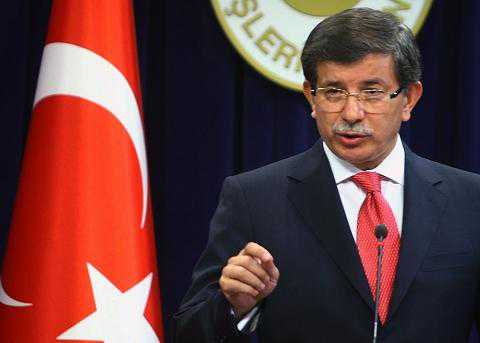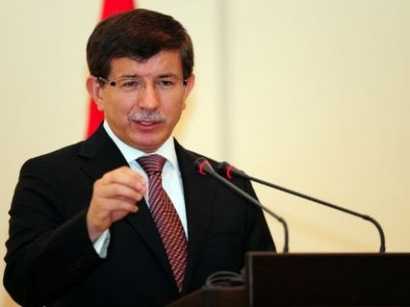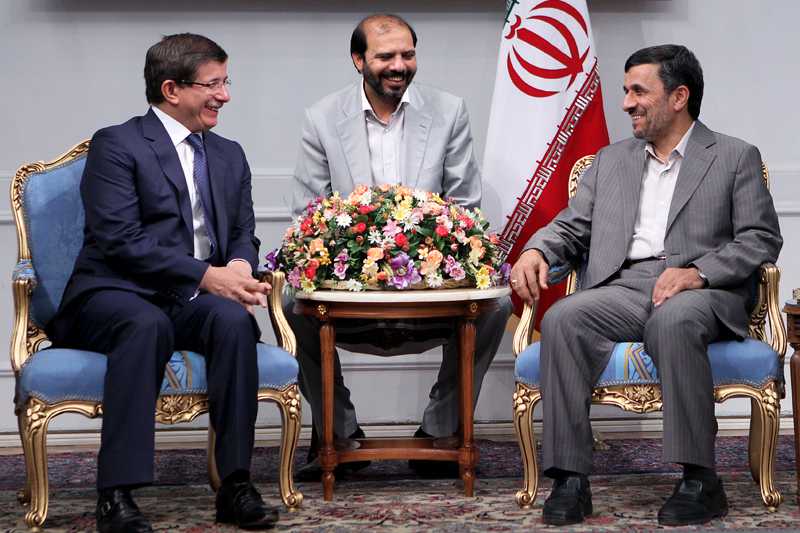Israel Turkey Relations Worsen After UN Report
Dorian Jones | Istanbul

Turkish Foreign Minister Ahmet Davutoglu speaks to the media in Ankara, Turkey, September 2, 2011.
Photo: AP
Turkish Foreign Minister Ahmet Davutoglu speaks to the media in Ankara, Turkey, September 2, 2011.
Turkey’s foreign minister says his government plans to apply to the International Court of Justice this week for an investigation into Israel’s blockade of the Gaza Strip. The move is expected to further deepen the diplomatic crisis between the two countries and comes despite calls from the U.N. secretary general to end the crisis.
Turkish Foreign Minister Ahmet Davutoglu’s comments were made after Turkey suspended military agreements with Israel and moved to downgrade diplomatic relations on Friday.
The Turkish moves follow the release of a U.N. report into last year’s killing of nine Turks during an Israeli operation to stop a flotilla ships trying to break its blockade. The report concluded that Israel used excessive force against the flotilla, though its blockade of Gaza was legal.
Tensions have steadily increased over Jerusalem’s refusal to meet Ankara’s demands for an apology and compensation to the families of the dead.
Israeli Prime Minister Benjamin Netanyahu told his cabinet that while his government regrets the deaths caused by the flotilla raid, the naval commandos defended their lives against violent activists. Netanyahu also said he hoped to mend ties with Turkey.
But Turkish Political columnist Asli Aydintasbas says that is unlikely unless Jerusalem meets Ankara’s demands.
“Knowing the prime minister’s personality and knowing the importance of this issue for Turkey, I do not see how Turkey can accept anything short of an apology,” said Aydintasbas.
The deepening diplomatic crisis follows calls for restraint by U.N. Secretary General Ban Ki Moon.
“Both sides are very important countries in the region,” he said. “Their improving relationship, normal relationship will be very important in addressing all the situations Middle East.”
Observers warn the deepening Israeli-Turkish crisis could threaten to further destabilize an increasingly volatile Middle East.
Political scientist Soli Ozel explains.
“There lies a powerful struggle between Turkey and Israel over who is going to be the top honcho [leader] in the eastern Mediterranean,” said Ozel.
Tensions could rise even further with reports Erdogan is planning to visit Gaza in mid September. Turkey’s Islamic-rooted ruling AK Party has strong ties with the Hamas leadership of Gaza.
Israel says it needs to maintain a naval blockade on Gaza to prevent arms smuggling to the ruling Hamas Islamic movement, classified as a terrorist organization by Israel, the European Union and the United States. Palestinians say the blockade causes undue suffering on the entire population of Gaza and violates international law
via Israel Turkey Relations Worsen After UN Report | Europe | English.





